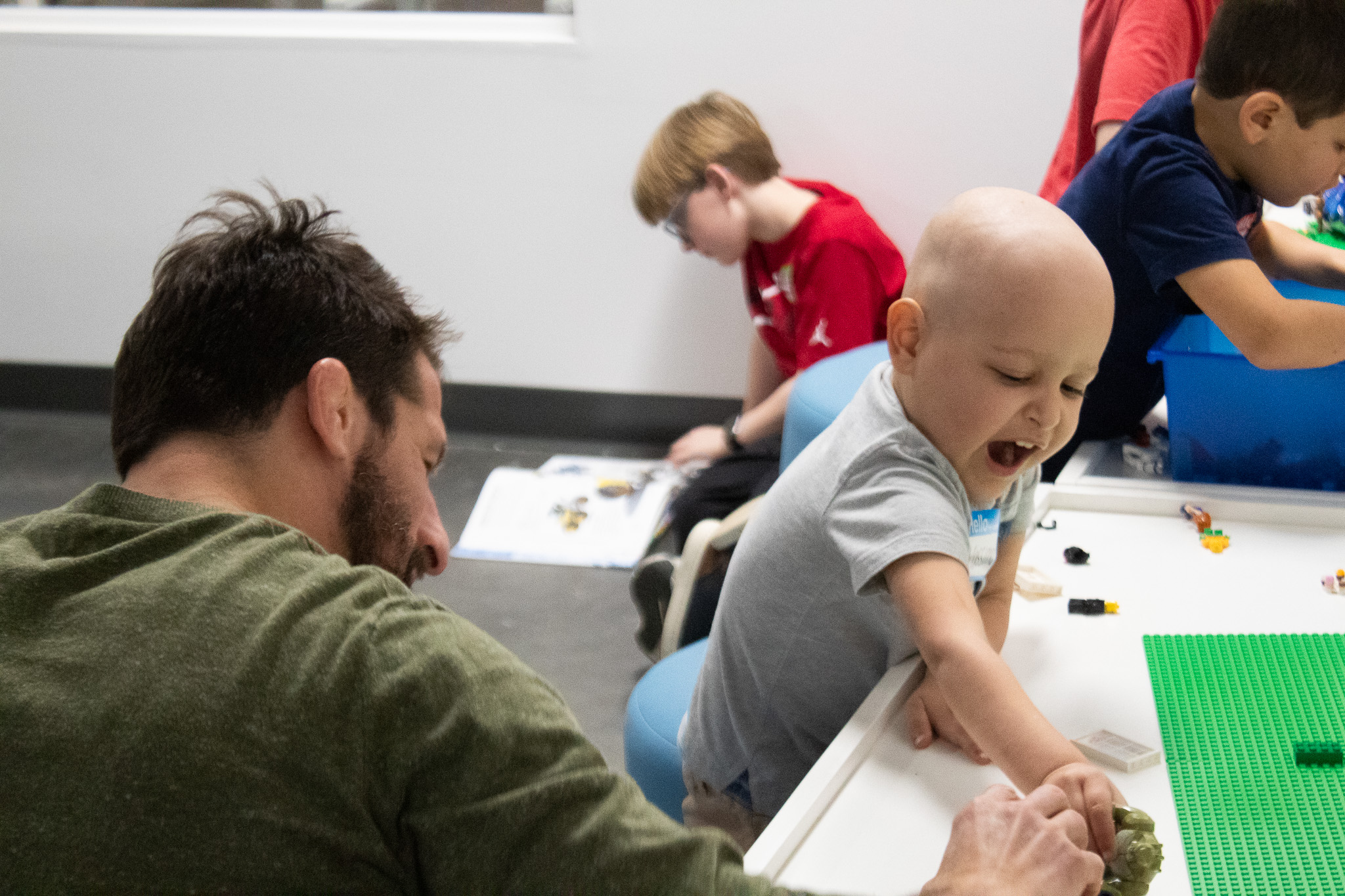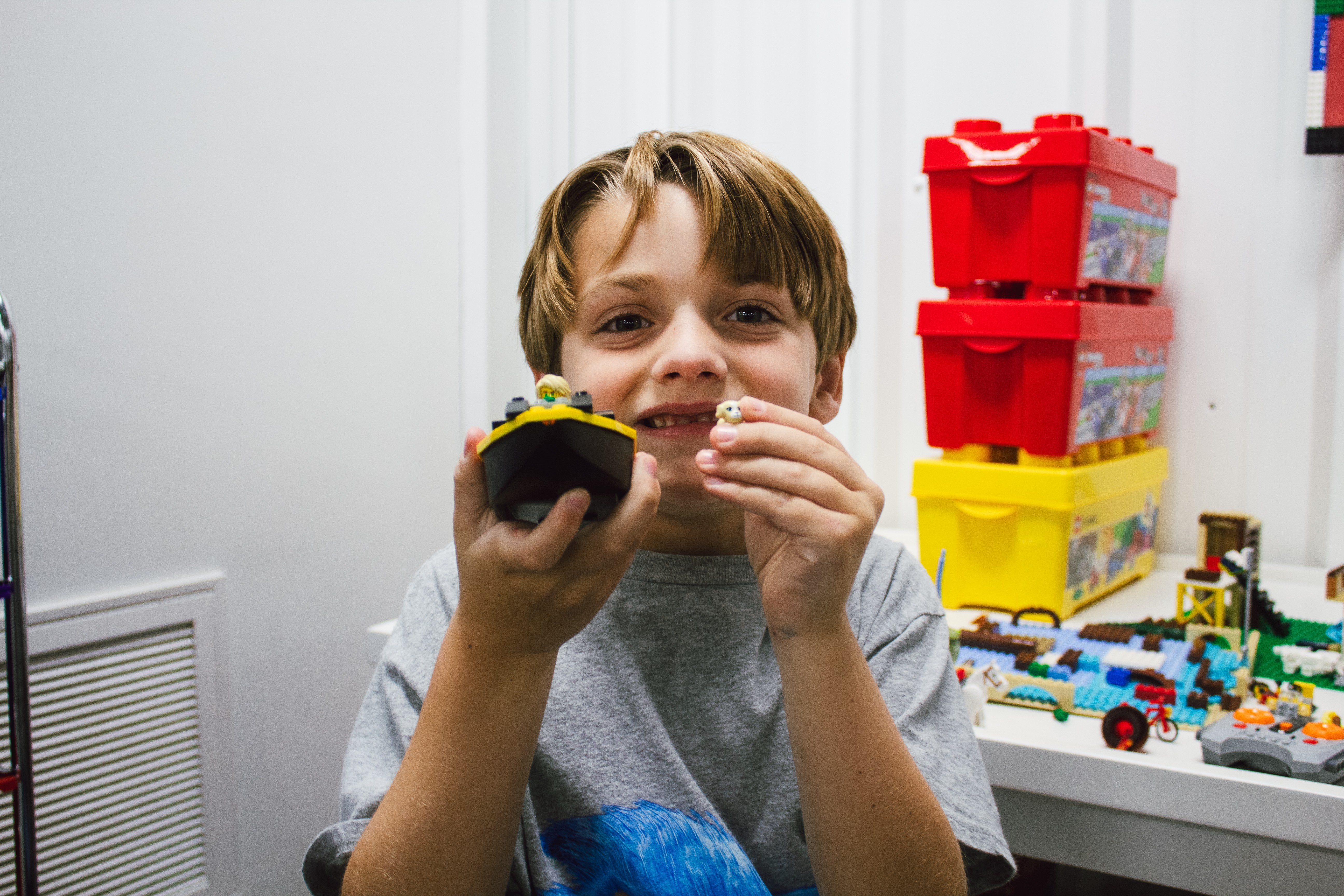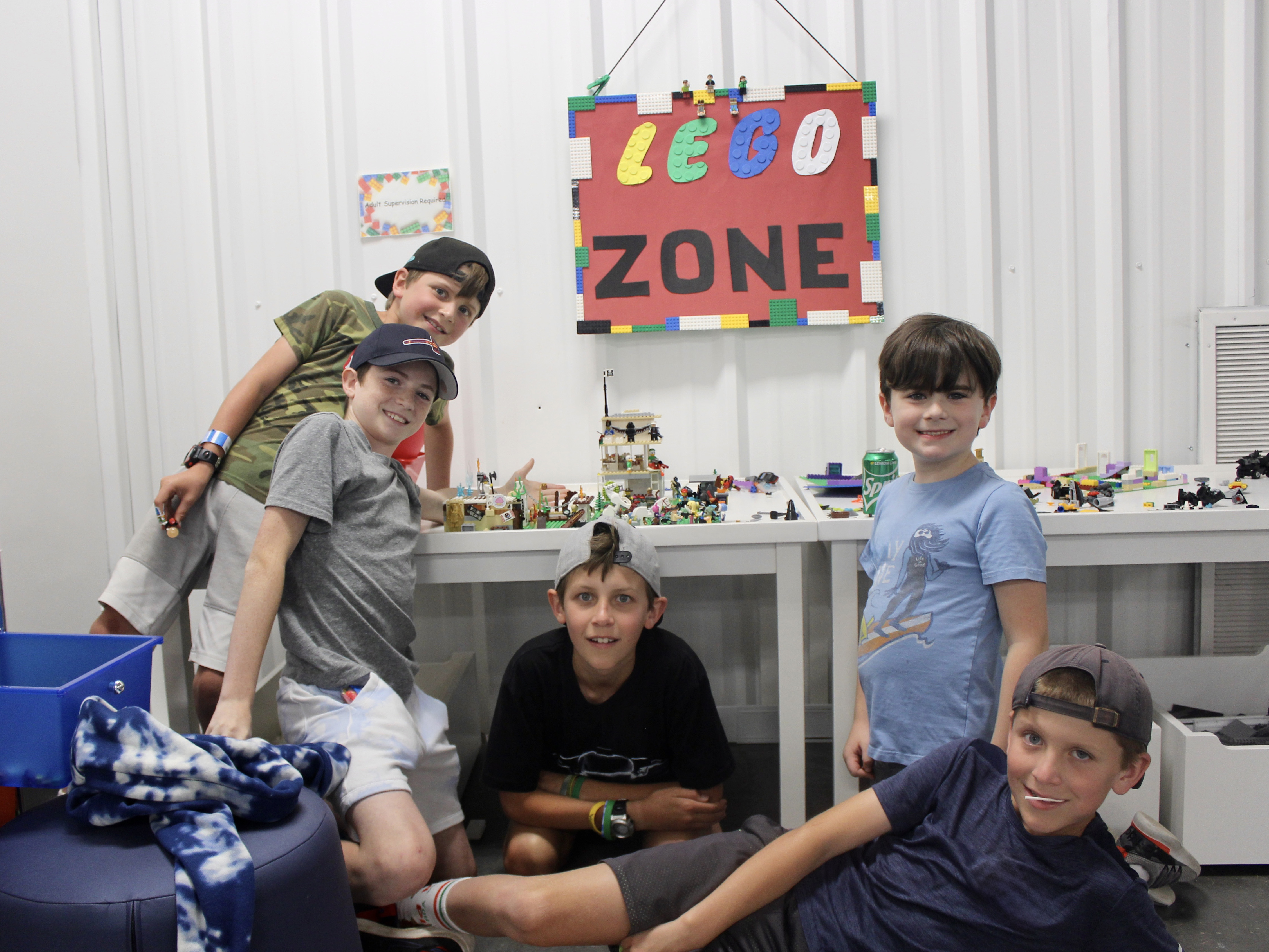Building Brighter Futures: The Benefits of LEGO Play
At the Austin Hatcher Foundation for Pediatric Cancer, we believe in the power of play. It’s more than just a way for children to pass the time; play is a vital part of learning, healing, and growing. We use many tools to support our families, but LEGOs stand out for being very popular amongst Foundation patients. And it's ability to combine fun with developmental benefits is definitely a plus!

Our freestyle LEGO station is a vibrant, creative hub within the Foundation, available to all families who visit us. This carefully designed station features an array of colorful blocks, neatly organized by color and type, along with building idea cards to inspire creativity. Whether a child is new to LEGOs or a seasoned builder, this station invites endless possibilities for creation and imagination.
But what makes LEGO play so special? Here are some of the many benefits that open-ended LEGO play can offer:
1. Improved Eye/Hand Coordination
As children pick up, place, and create with LEGO bricks, they are engaging in activities that refine their eye/hand coordination. This skill is crucial not only in play but also in everyday tasks and academic settings. Through repeated practice, children develop the ability to synchronize their visual input with motor actions, leading to smoother, more precise movements.
2. Development of Spatial Skills
Building with LEGOs involves understanding how different pieces fit together to form structures. This type of play helps children develop spatial skills, which are essential for activities like reading, writing, and even understanding mathematical concepts. By experimenting with different combinations, children learn to visualize objects in three-dimensional space, a key component of spatial reasoning.
3. Persistence and Patience
LEGO play often involves trial and error. A structure may collapse, or a design might not work out as planned. However, these moments offer valuable lessons in persistence and patience. Children learn to approach challenges with a problem-solving mindset, trying new strategies until they achieve their desired outcome. This resilience is a crucial life skill that will serve them well in all areas of life.

4. Enhanced Fine Motor Skills
As children manipulate small LEGO pieces, they engage their fine motor skills. These are the small, precise movements of the fingers and hands that are essential for tasks like writing, buttoning clothes, and using utensils. The repetitive action of snapping bricks together or carefully placing a piece in a specific spot helps strengthen these muscles and improves dexterity.
5. Problem-Solving Skills
LEGO play is a natural problem-solving exercise. Whether following instructions to build a specific model or creating something entirely new, children must think critically about how to achieve their goal. They learn to plan ahead, consider various possibilities, and make decisions based on the materials at hand. This type of strategic thinking is crucial not only in academics but also in everyday life.
6. Learning How to Plan
Open-ended LEGO play allows children to experiment with planning and execution. They may start with an idea, then determine what steps are needed to bring that idea to life. This process of setting a goal, making a plan, and following through is an important cognitive skill that fosters independence and confidence.
7. A Sense of Accomplishment
There’s nothing quite like the feeling of completing a LEGO creation. Whether it’s a simple tower or a complex structure, finishing a project brings a sense of accomplishment and pride. This boosts self-esteem and encourages children to take on new challenges, both in play and in other areas of life.

8. Teamwork and Collaboration
While LEGO play can be a solitary activity, it also offers opportunities for teamwork and collaboration. When children build together, they must communicate, share ideas, and work toward a common goal. This fosters social skills like cooperation, negotiation, and conflict resolution. At our LEGO station, we often see siblings and friends coming together to create something amazing, reinforcing the bonds between them.
Why We Love LEGOs at the Austin Hatcher Foundation
LEGO play aligns with our mission at the Austin Hatcher Foundation to support the development and well-being of children affected by pediatric cancer. It offers a safe, engaging, and therapeutic way for children to express themselves, develop new skills, and find joy in creation. The benefits of LEGO play extend far beyond the moment; they contribute to a child’s overall growth and resilience.
Our freestyle LEGO station is always open, inviting children and their families to explore, build, and imagine. Whether they’re constructing a towering skyscraper, a fantastical creature, or simply sorting bricks by color, every moment spent in LEGO play is a step toward a brighter, stronger future.
Join Us in Building a Better Tomorrow. The Austin Hatcher Foundation for Pediatric Cancer is a nonprofit organization dedicated to providing a lifetime of free essential services to children and families affected by pediatric cancer. Through its various programs, the Foundation offers support, education, and hope to children battling cancer and their families, helping them navigate the challenges of diagnosis, treatment, and survivorship. For more information about the organization, to get involved, or to donate to support our mission, visit www.HatcherFoundation.org.


.png)


.png)